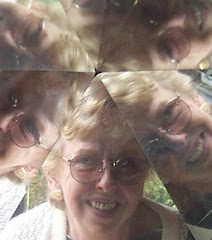Writing Your Memoir
There is one writing project that everybody should feel compelled to undertake for their family and heirs, and that’s a memoir.
How I wish my grandmother and grandfather had left a written record of their lives. Yes, they told me stories, but I was the typical disinterested kid. It wasn’t cool to let them know I cared. Almost anything took precedence over their tales from the past.
Still, some part of the stories seeped into the corners of my mind. In later years, when someone brought up the name of someone named B.J. in my grandmother’s hometown and wondered if he had been her relative, I could answer with almost certainty because I remembered hearing her call him Uncle B.J. When my grandfather told of walking miles to court my grandmother, somehow I also remembered later where he had said they both lived. These facts weren’t important to me as a teenager, but they became important when later the family would get together and try to recall family tales. But we couldn’t verify anything because, unfortunately, my grandparents were no longer around to ask.
Most people don’t seem to realize that their story has value for anyone but themselves, but once you are gone, only your memory lives on. Very rarely are your stories recalled with any accuracy. How will your grandchildren know what life was like for you growing up as a teenager? How can they fathom the differences between transportation, school, clothing fads, or technology? Sure you might try to tell them about these things, but they probably feign disinterest in hearing about the “old ways,” and instead prefer plugging the earpiece of their MP3 players into their ears and tuning you out. But if you’ve put it all in writing, there will come a day when they pick up your memoir and read it. Often you’re no longer around when they decide to start asking questions about the family and the past. Your memoir may be their only connection to these stories.
Your memoir can enrich your family’s sense of connection to the past by weaving in old family stories as well as your own life story.
But you wonder, “Where do I start?”
The easiest way to get started is to jot down snatches of memories. Write down your recollection of eating an ice cold snow cone and having it drip down the front of your shirt on a hot, sticky day at a little league game. Jot down a note about your first car, and how it didn’t have reverse gear, so you had to park it where you could drive forward to get out. Make a note about the bunking parties you remember (now called sleepovers), who was there, and what you did to have fun. If your family had a garden, make a note about it and what was planted there, whether you helped till the soil or pick the fruits and vegetables, whether you ate them there in the garden or made it to the house with them uneaten. Note the simple things, which will probably spark more memories and become cherished stories.
These notes don’t have to be in any order. Later, you can organize your list in a way that makes sense for your memoir. The notes can be divided by age or by activity or family gatherings. Your memoir can start at the beginning and end at the present time, or it can start with some significant memory and go either backwards or forward, or it can start right now and work backwards. There’s no hard or fast rule about how memoirs are organized, so write it however you wish.
Another way to organize your thoughts and make sure you leave nothing out is to start a list of topics in the middle of a blank page, such as parents, siblings, extended family members, school memories, parties, dances, sports activities, first date, double-dating, first kiss, first boy or girlfriend, significant movies you remember seeing, first car, first bicycle, your neighborhood friends, games you played together, getting married, having babies, etc.
Circle each topic, then draw a line out from each and start a related list, such as: school memories—name(s) of school(s), first day of school, favorite teacher, favorite subjects, playground memories, getting in trouble, school plays or programs, friends, etc. This type of information gathering expands out, and will help you recall lost memories. Write about your parents: your mother’s favorite dress, how she wore her hair, her scent, favorite foods that she cooked; your dad’s work clothes, what he did for a living, how he smelled when he came home, the sound of his car as he drove in the driveway, the smell of grass as he (or you) mowed the lawn. It’s important to recall how you felt about specific moments: sad, happy, or overjoyed; whether you laughed, cried, or wailed; whether you were frightened or confident.
The above system can also be used for organizing someone else’s life story, even those who have hired you to write their memoirs. Everyone collects a lifetime of experiences, almost any of which will make an interesting story. Find ways to ferret out the most significant memories.
My sister was only 56 when she passed away—shortly after her first two grandchildren were born, so the only memories they have of her are from watching old videos in which she appeared. Mostly, though, she took the videos and didn’t have a starring role. When her third grandchild was born, I realized she had never even met her grandmother, so I sat down and wrote a memoir for all three of her grandchildren and titled it, “When Grammy Was a Little Girl.”
Since my sister was a year younger than me, I had memories of her when she was very young, plus photos and stories told by our mother and aunt. We played together, laughed and cried together, fought with each other, and shared most important life experiences until we became older teenagers. Her best friend from high school told me of activities that added depth to her school day stories. Still, I couldn’t recall all the memories she might have thought important to leave her grandchildren, and I probably remembered some things she would rather her grandchildren not know!
I’ll never know what she would have wanted, but her grandkids do now have a book with photos of her as a little girl and teenager, and stories about her life that hopefully brings her closer to them. I ended the book with her meeting and marrying their granddad. Even though she and I spent less time together after we both married, we still managed to share some funny, poignant, crazy and sad times even as we aged—some that her grandchildren might enjoy hearing someday.
Life can slip away before we know it, so make sure you get your memories down on paper as soon as possible. Even if you don’t think anyone cares about them, your written story will charm someone, somewhere, and will be a lasting record of your time spent here on earth.


No comments:
Post a Comment